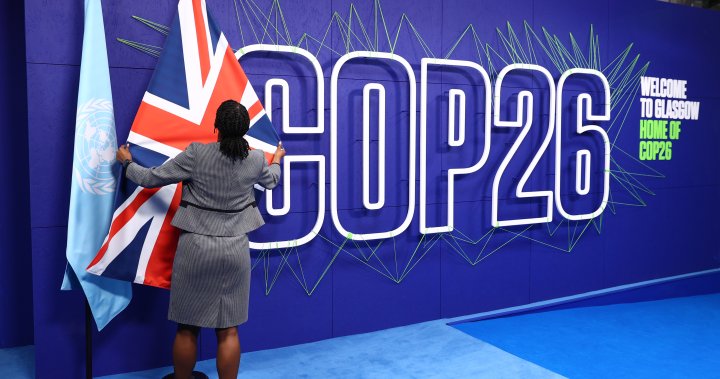
COP26: Climate consensus appears near, India disagrees with coal plans
Global News
The last-minute huddles focused on a potential loss-and-damage fund for poor nations hurt by climate change and forest credits in a carbon-trading market.
After hours of one-on-one huddles and contentious disagreements over money, countries participating in United Nations talks to curb global warming appeared to be nearing a consensus Saturday, but India was saying not so fast.
A rich-poor divide widened at the U.N. summit in Glasgow, Scotland in recent days, with developing nations complaining about not being heard. But when the representative from Guinea, speaking for 77 poorer nations and China, said his group could live with the general results, negotiators applauded.
The Chinese delegation also said it was fine with the positions that would come out of a Glasgow in a final conference agreement. But Indian Environment Minister Bhupender Yadav potentially threw a wrench when he argued against a provision on phasing out coal-fired power plans, saying that developing countries were “entitled to the responsible use of fossil fuels.”
Yadav said that there was no consensus on key issues and blamed “unsustainable lifestyles and wasteful consumption patterns” in rich countries for causing global warming. It was unclear whether India would try to stop a potential deal.
A frustrated European Union Vice President Frans Timmermans, the 27-nation EU’s climate envoy, begged negotiators to be united for future generations.
“For heaven’s sake, don’t kill this moment,” Timmermans pleaded. “Please embrace this text so that we bring hope to the hearts of our children and grandchildren.”
Small island nations that are some of the most vulnerable to catastrophic effects of climate change and had pushed for bolder actions said they were satisfied with the spirit of compromise.
“Glasgow has developed a strong message of hope, a strong message of ambition,” Seve Paeniu, finance minister for the South Pacific island nation Tuvalu, said. “What is left for us to deliver.”











